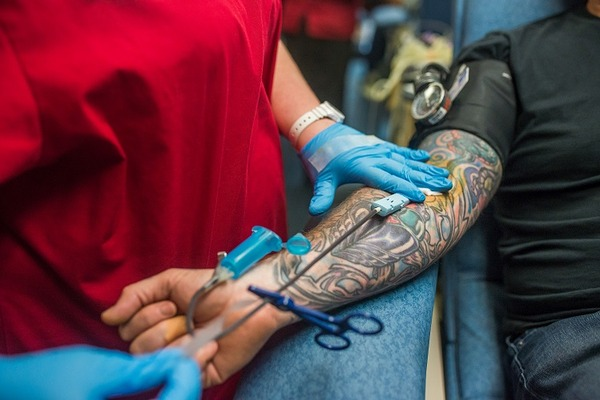🩸 Blood Donation Tattoo Eligibility: What You Need to Know in 2024
If you’ve recently gotten a tattoo and are considering donating blood, you might be wondering: Am I eligible to donate? This is a common concern among potential blood donors, and the answer depends on where you live, how recently the tattoo was applied, and who performed it.
In this guide, we explore the latest eligibility rules for blood donation after getting a tattoo, why these rules exist, and how to safely become a donor even with body art.
🔍 Why Tattoo-Related Restrictions Exist
Tattoos involve breaking the skin, which means there is a risk of infection—particularly blood-borne viruses such as Hepatitis B, Hepatitis C, and HIV. To ensure safety, blood banks need to verify that new tattoos were administered in safe, sterile conditions.
Blood donation centers use a deferral period to prevent any potential transmission of diseases that may not show up in tests immediately after infection (known as the “window period”).
🕒 Waiting Period After a Tattoo
| Region | Waiting Time After Tattoo | Conditions |
|---|---|---|
| United States | Usually 1 day to 12 months (varies by state) | No wait if done in a licensed facility in regulated states |
| United Kingdom | 4 months | Regardless of facility |
| Canada | 6 months | If done outside of Canada or in non-regulated facilities |
| Australia | 4 months | If tattoo done in licensed parlor; longer if unregulated |
| India | 6-12 months | Due to infection risk; varies by hospital or blood bank |
✅ Note: Always check with your local blood bank or national donation guidelines, as rules may change.
🧾 Tattoo Eligibility Criteria for Blood Donation
Here are the general rules followed by most donation services:
✅ You can donate blood if:
-
Your tattoo was done in a state-regulated facility using sterile, single-use needles and non-reused ink.
-
It has been at least 3 to 12 months since you got your tattoo (depending on your country or region).
-
You do not show signs of infection or allergic reactions on or around the tattoo.
❌ You cannot donate blood immediately if:
-
The tattoo was done in a non-licensed or home setting.
-
It has been less than the required deferral period.
-
You traveled internationally and got a tattoo in a high-risk area (per WHO classifications).
🧬 What Happens If You Donate Too Soon?
Donating blood too soon after getting a tattoo—particularly from an unregulated setting—can potentially compromise the safety of the blood supply. Blood banks screen donations for infections, but some viruses take weeks or months to become detectable.
To minimize this risk, strict deferral periods are enforced globally. Following the rules ensures both donor health and recipient safety.
💉 Licensing and Regulation of Tattoo Parlors
The key factor in determining your eligibility is whether the tattoo was performed in a licensed parlor. Here’s why it matters:
| Aspect | Licensed Tattoo Parlors | Unlicensed/DIY Settings |
|---|---|---|
| Hygiene Standards | Regular inspections and health code compliance | No oversight or health protocols |
| Equipment | Sterile, single-use needles and ink | Risk of reused or contaminated tools |
| Training | Artists certified in safety and sanitation | Unverified skills or safety knowledge |
If you’re planning on getting a tattoo and wish to continue donating blood, choose a reputable and licensed facility.
🩸 How to Donate Blood If You Have Tattoos
Having a tattoo does not disqualify you from donating blood—even if you have multiple tattoos. Here’s how to prepare:
Step-by-Step Guide:
-
Check the Date: Verify the date of your last tattoo and ensure the required waiting period has passed.
-
Confirm Licensing: Make sure your tattoo was done in a licensed, state-regulated shop.
-
Self-Assessment: Confirm you are in good health and meet all standard donation criteria.
-
Documentation: Some blood centers may ask for proof of where and when your tattoo was applied.
-
Register and Donate: Visit your local blood donation center and inform them of your tattoo history.
🧠 Common Myths About Tattoos and Blood Donation
Let’s debunk a few myths:
| Myth | Reality |
|---|---|
| “Tattoos permanently disqualify you.” | ❌ Not true—only a temporary deferral applies. |
| “Tattoo ink stays in your bloodstream.” | ❌ Tattoo ink remains in your skin, not circulating in your blood. |
| “You can’t donate if you have many tattoos.” | ❌ As long as each tattoo meets criteria, you are eligible. |
🌍 International Guidelines for Tattooed Donors
For those who travel frequently or plan to donate internationally, it’s important to note that:
-
Red Cross (US): No waiting period if tattoo was done in a regulated state (e.g., California, Texas).
-
NHS Blood (UK): Mandatory 4-month deferral after all tattoos or piercings.
-
WHO Guidelines: Recommends rigorous screening for tattoos done in high-risk zones.
You can find more information on the American Red Cross and World Health Organization websites.
🔁 When You Can Donate Again
Once the deferral period has passed and all criteria are met, you can return to donating blood as usual. Don’t forget:
-
Drink plenty of water the day before
-
Eat a healthy, iron-rich meal
-
Avoid strenuous exercise post-donation
If you’re unsure about eligibility, reach out to your local center. Many now provide online pre-screening tools.
📚 Related Articles from Vounesy.com
🌟 Final Thoughts
Tattoos are a beautiful form of self-expression, and thankfully, they don’t prevent you from being a life-saving blood donor. As long as you follow safety protocols and wait the appropriate time, you’ll be back in the donor chair in no time.
Remember: Blood donation saves lives. Tattoos don’t change that.
For more helpful guides, visit Vounesy.com and join our community of informed, impactful donors.
